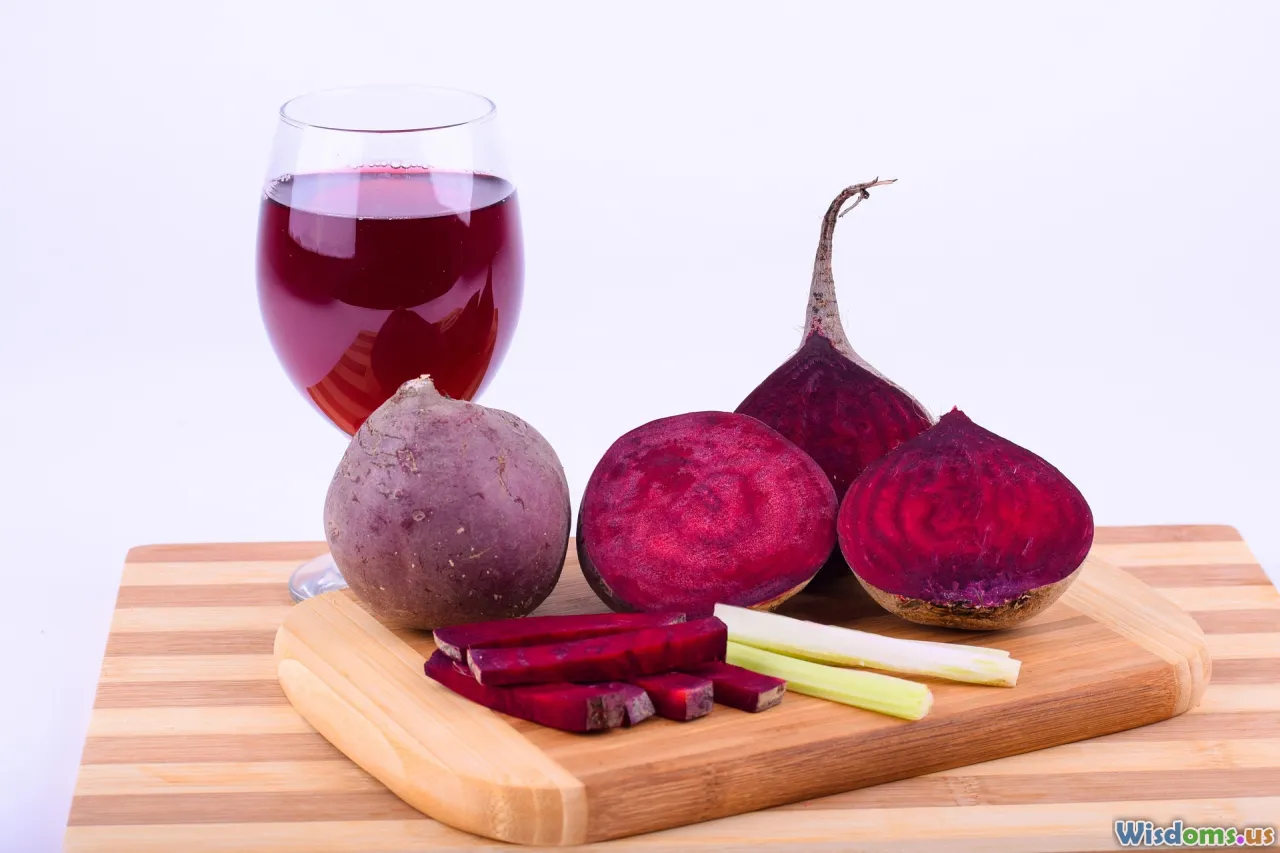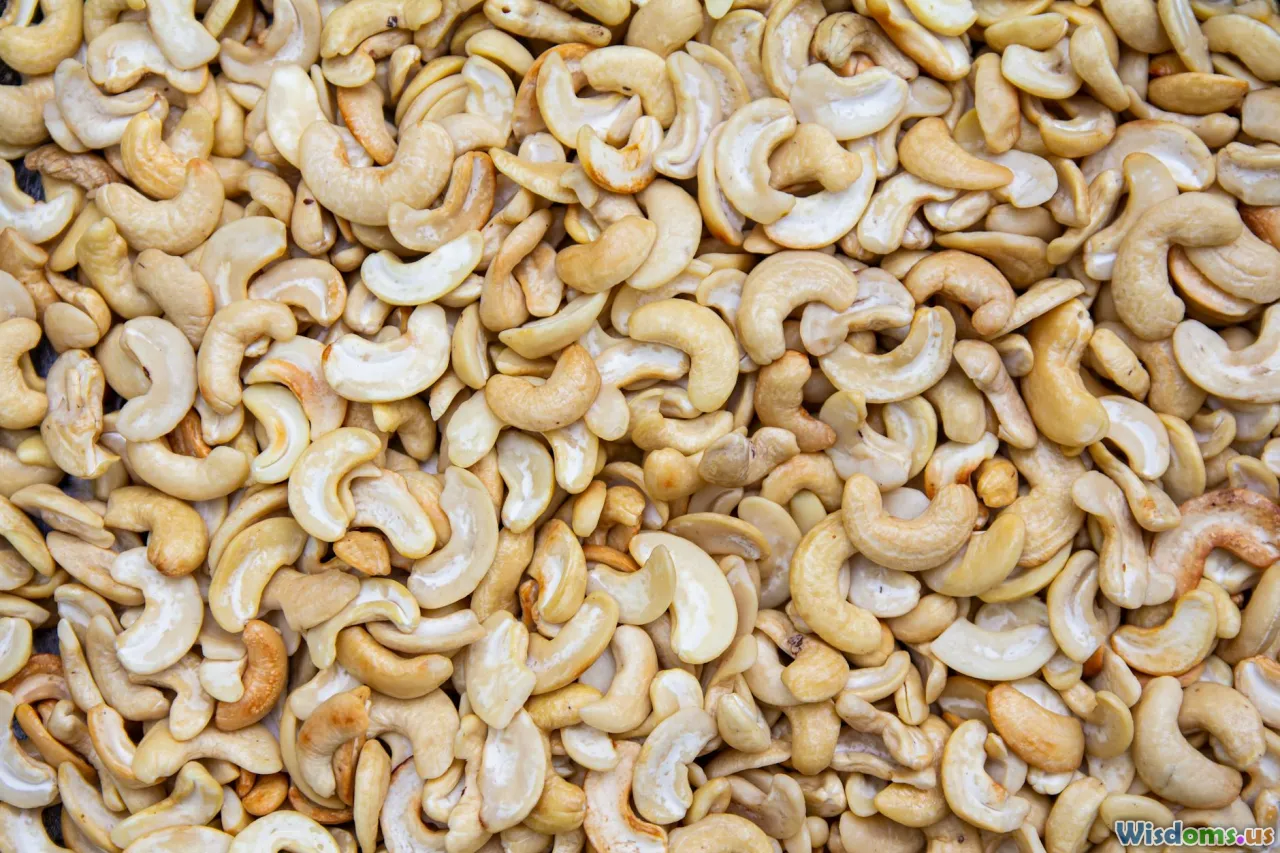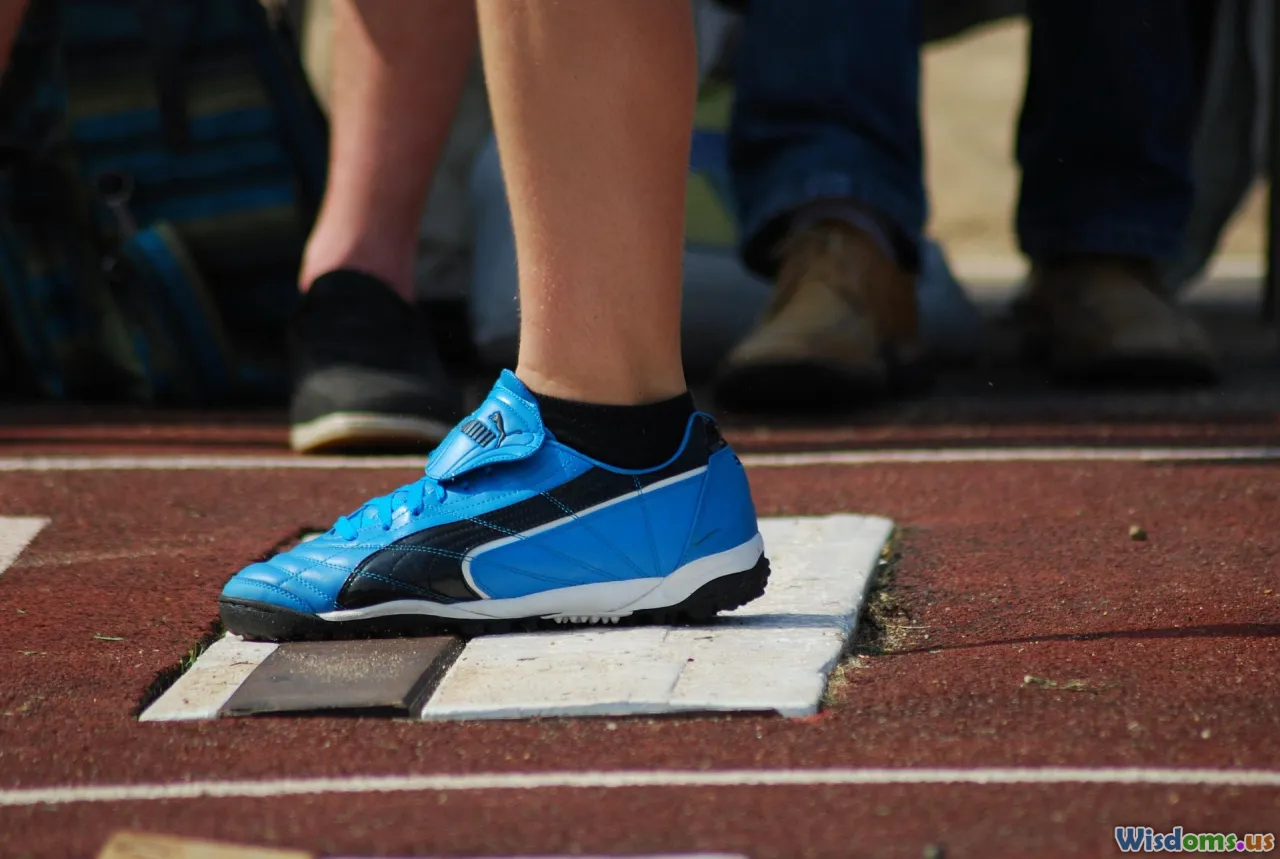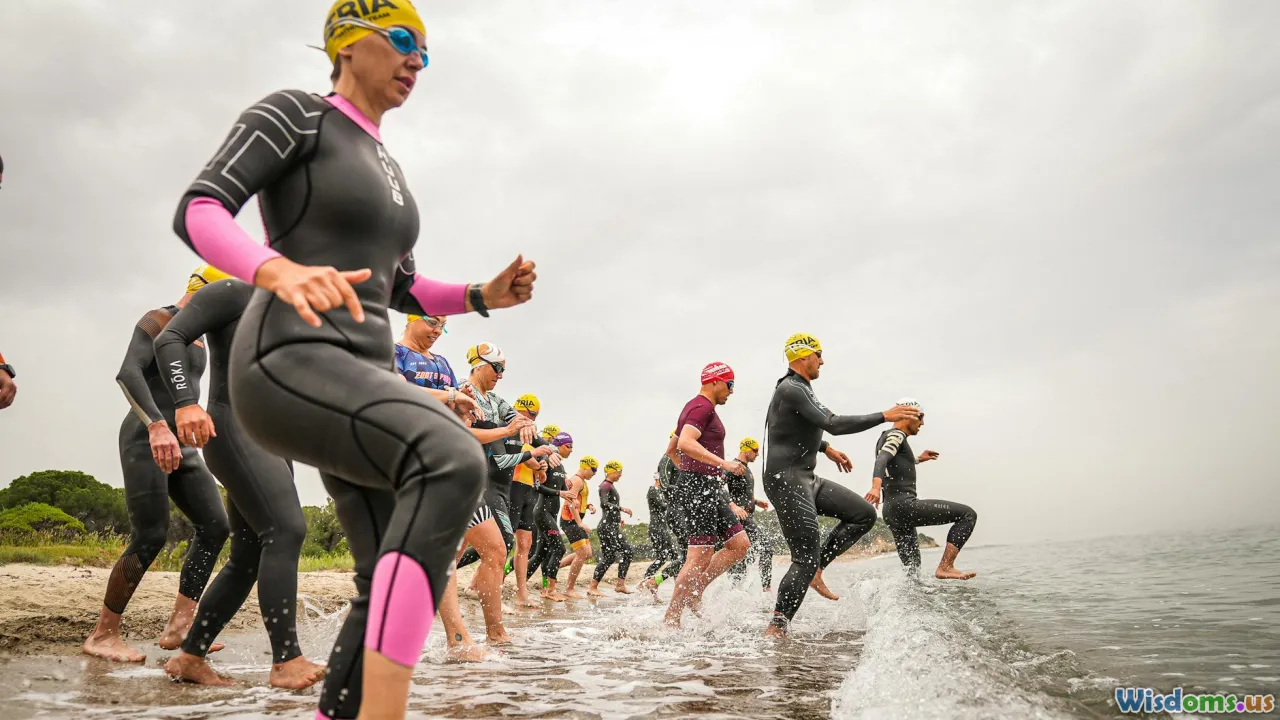
How Carbohydrates Fuel Peak Athletic Performance
15 min read Explore how carbohydrates support energy and optimize peak athletic performance with science-backed strategies. (0 Reviews)
How Carbohydrates Fuel Peak Athletic Performance
Whether you're chasing a personal best or stepping onto the field for an important match, optimizing your nutrition can mean the difference between winning gold and fading out before the finish line. At the center of elite athletic nutrition sits one macronutrient: carbohydrates. Unraveling how carbs work within the body, and learning how to use them strategically, gives every athlete a science-backed advantage others may overlook.
The Science of Carbohydrates for Athletes

Carbohydrates are one of the three primary macronutrients, alongside proteins and fats. While all macronutrients play significant roles in health and energy, carbs have a unique relationship with athletic performance. They serve as the body’s most immediate and accessible energy source—especially crucial during high-intensity or endurance exercise.
Carbs are stored as glycogen in muscles and the liver. During strenuous activity, the body rapidly breaks down glycogen into glucose, which is then used to fuel muscle contractions. Unlike fat or protein, carbohydrates can be metabolized more efficiently, providing an energy yield that supports both short, explosive movements (like sprints) and prolonged exertion (like marathons).
Scientific Insight:
- Muscle Glycogen: A fully fueled male athlete stores roughly 400–500 grams of glycogen in their muscles, while the liver stores about 100 grams. These reserves are finite, with muscle stores able to be depleted in 90–120 minutes of continuous, moderate- to high-intensity activity.
- Performance Drop-Offs: Studies from the Journal of Sports Sciences have shown performance can decline dramatically—by up to 50%—when muscle glycogen becomes depleted, leading to the infamous “hitting the wall.”
Exemplar: During the 2004 Athens Olympic Marathon, Paula Radcliffe—favorited for gold—collapsed after suffering "bonking": a sudden depletion of glycogen, despite her stellar training.
Types of Carbohydrates and Their Athletic Impact

Carbohydrates come in various forms, broadly classified as simple (sugars) and complex (starches and fiber). Each plays a distinct role in the nutrition timeline of an athlete.
- Simple Carbohydrates: Found in fruits, honey, and sports drinks, these break down rapidly, supplying quick streams of glucose—ideal during and immediately after exercise to replenish energy quickly.
- Complex Carbohydrates: Examples include whole grains, beans, and starchy vegetables. These release glucose more slowly due to their fiber and nutrient content, making them best for sustained energy leading up to training sessions.
Practical Example:
- Pre-Event Meal: Whole wheat pasta with vegetables 3–4 hours pre-event provides long-lasting energy.
- Mid-Event Refuel: During an endurance race, carbohydrate-rich gels or bananas could offer a quick energy boost to stave off fatigue.
Key Takeaway: Athletes must not just focus on how much carbohydrate they consume, but which type and when it’s timed around training and competition.
Timing Strategies: Fueling Before, During, and After

Strategic timing of carbohydrate intake is pivotal for maximum performance. Nutrition advice for athletes isn't one-size-fits-all, but sport nutrition scientists broadly advise the following approaches:
Before Activity
Eat a carbohydrate-rich meal 3–4 hours before intense activity. This could be:
- Oatmeal with fruit
- Brown rice and grilled vegetables
- Sweet potato with lean protein
Avoid fibrous or fatty foods immediately before exercise, as these slow digestion and can cause gastrointestinal discomfort.
During Activity
For exercise exceeding 60–90 minutes, aim for 30–60g of carbohydrates per hour. This keeps glycogen stores topped off and prevents fatigue-related drop-offs.
Example:
- Endurance cyclist: Sports drink (6–8% carbohydrate solution) sipped regularly.
- Marathon runner: Energy gels every 45 minutes.
After Activity
Within 30 minutes of exercise, prioritize fast-digesting carbs (with some protein, ideally at a 3:1 ratio) to jumpstart glycogen recovery. Chocolate milk, fruit smoothies, or a sandwich with lean meat are popular options.
The goal: Replenish glycogen rapidly so recovery starts immediately—crucial for athletes facing multiple events in a single day or back-to-back games.
Evidence:
A 2018 review published in Nutrients found that carbohydrate replenishment within two hours post-exercise restored up to 150% faster muscle glycogen levels than delayed intake.
Common Myths About Carbohydrates and Athletic Performance

Even among seasoned athletes, misconceptions about carbohydrates abound. Separating fact from fiction ensures performance isn't accidentally sabotaged.
Myth 1: "Low-Carb Diets Are Best for Endurance"
While low-carb, high-fat diets have popularity in mainstream media, most elite sports organizations, including the International Olympic Committee, advocate carbohydrate-based nutrition for peak endurance performance. Low-carb diets can force the body to burn fat for fuel—a process known as ketosis—but studies show this reduces exercise economy and peak power, resulting in slower race times.
Myth 2: "Carbs Make You Gain Weight"
Excess calorie intake—regardless of the source—results in weight gain. For active individuals, carbs are rapidly used for energy and recovery. Cutting carbs below a minimum threshold often leads to early fatigue, muscle breakdown, and even increased injury risk due to under-fueling.
Myth 3: "Sugar Is Always Bad"
Simple carbohydrates like glucose and sucrose are essential during prolonged or high-intensity exercise. They enable rapid energy delivery, delay fatigue, and speed up recovery. While not meant for couch consumption, in the midst of training sessions, these sugars can be the very thing that keeps performance—and spirits—high.
Fact-Check:
- A 2020 study in Sports Medicine reinforced that carbohydrate restriction impairs standing start sprints, time-to-exhaustion, and time-trial work output for athletes across sports.
Beyond Fuel: Carbohydrates and the Athlete's Central Nervous System

Carbohydrate’s benefits aren’t only about powering muscles—they also energize the brain. During demanding events, mental fatigue can be just as limiting as physical exhaustion. Glucose is the primary energy source for the brain, supporting functions like decision-making, concentration, and fast reaction times.
Real-World Example:
Soccer midfielders cover about 10–12 km per game and must make hundreds of split-second tactical judgments. Research published in the British Journal of Sports Medicine found that carbohydrate mouth rinses—simply swirling a carb-rich solution in the mouth—improved short-term cognitive function and reaction times, even when not swallowed.
Athletes in dynamic, high-cognition sports (tennis, basketball, water polo) especially benefit from regular carbohydrate intake to keep both mind and body sharp as the game clock winds down.
Advanced Approaches: Periodized Carbohydrate Intake

Top athletes and coaches are moving beyond static daily carb recommendations and adopting nutrient periodization: adjusting carbohydrate intake based on training demands and goals.
Principle:
- High-Carb Days: On heavy training or race days, intake may reach 7–12 grams of carbohydrate per kilogram of bodyweight.
- Lower-Carb Days: On lighter training or rest days, carbohydrate intake can drop to 3–5g/kg.
Benefits:
- Maximizes training adaptations (like increased fat usage on lower-carb days)
- Ensures high performance during critical events
- Reduces unnecessary overfeeding and body fat accumulation
Example: A professional cyclist may schedule high-carb feedings before and during races, but strategically lower daily carbohydrate during off-season to help fine-tune body composition and maintain metabolic flexibility.
Choosing and Combining Carbohydrates for Specific Sports

Different sports require tailored carbohydrate fueling approaches. Here’s how athletes from various disciplines adapt their carb strategies for best results:
Endurance Sports (Marathon, Triathlon, Cycling)
- Focus on maximizing glycogen stores in the days before long competitions (carbohydrate loading: 7–12g/kg/day)
- During events, consume 30–90g of carbohydrates per hour, depending on duration and intensity
- Effective sources: Energy gels, sports drinks, bananas, white rice balls (Japanese onigiri)
Intermittent/Stop-and-Go Sports (Soccer, Basketball)
- Pre-game complex carbs for sustained energy (pasta, quinoa)
- Simple carbs (sports drinks, dried fruit) at halftime or during breaks to top off glycogen
- Evidence shows carbohydrate beverage swilling (not swallowing) can help to refresh speed and mental acuity
Power and Sprint Sports (Weightlifting, Sprints)
- Daily carb intake: 5–7g/kg is usually sufficient
- Prioritize quick carbs in the immediate pre- and post-workout window to recover ATP (the cell’s energy currency) and power maximal explosive efforts
Fact Box: Sprinters such as Usain Bolt have routinely emphasized high-carb meals in training (including rice, yams, and pasta) to drive muscle output and recovery.
Practical Tips: Implementing Superior Carb Strategies

Translating science into practice is where many athletes find their biggest nutritional wins. Here are actionable, research-driven strategies to get the most from your carbohydrates:
1. Emphasize Food Variety
Rely on a mix of
- Whole grains (brown rice, oats, bulgur)
- Winter squashes
- Fruits (berries, oranges, bananas)
- Legumes
This diverse approach supports gut health, immune function, and broader nutrient intake.
2. Practice Carb Loading
For events over 90 minutes, ramp up carbohydrate intake for 1–3 days before with familiar foods. Classic approach: 8–10g/kg bodyweight, split over frequent meals, to maximize muscle glycogen.
Case Reference: The winning men’s marathoner at the 2019 World Championships reportedly consumed nearly 1,000g of carbs in the 36 hours before race day.
3. Avoid the "New Foods on Race Day" Trap
Digestive issues can zap performance faster than fatigue ever will. Only use carb foods you’ve trained with previously, and test sports nutrition products (gels, chews) during workouts well before race day.
4. Hydrate and Combine Carbs with Electrolytes
Sweating heavily? Combine carbohydrate with sodium, potassium, and magnesium—either via specialized drinks or homemade concoctions (e.g., orange juice, a pinch of salt, and water). This aids fluid absorption and sustains energy longer than water alone.
5. Track Your Response
Use training logs to monitor how different carbohydrate strategies impact:
- Energy levels
- Recovery times
- Performance metrics (lap times, weights, etc.)
Research Note: Wearable glucose monitors are now being used by elite teams to refine nutrition plans on-the-fly—allowing athletes to "see" how their bodies respond, and adjust meals/snacks in real-time.
Looking Forward: Carbohydrates As the Cornerstone of Winning Nutrition

Performance nutrition isn’t about following trends—it’s about making choices grounded in substance and science. Carbohydrates remain the backbone for anyone striving for sporting excellence, anchoring workouts and competition days with sustained, powerful energy and speedy recovery.
Whether you’re an aspiring Olympian, a weekend warrior, or a coach looking to boost your squad’s results, leveraging the right carbohydrates, in the right way, at the right time unlocks more than endurance: it supercharges skill, sharpens mind, and keeps the pursuit of personal bests exciting and sustainable.
Smart strategies and a little experimentation mean that optimal carb fueling isn’t just for the pros—it’s accessible for everyone hungry for peak performance.
Rate the Post
User Reviews
Popular Posts

















